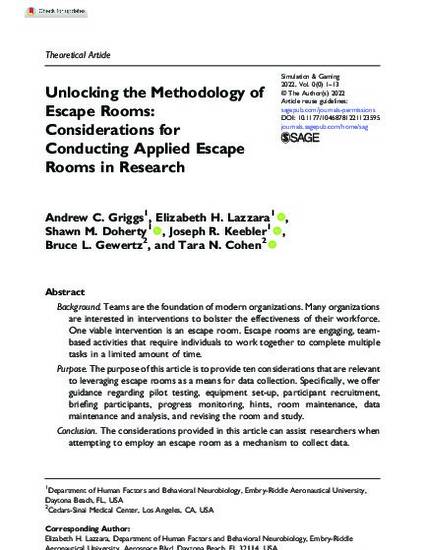
Background. Teams are the foundation of modern organizations. Many organizations are interested in interventions to bolster the effectiveness of their workforce. One viable intervention is an escape room. Escape rooms are engaging, team based activities that require individuals to work together to complete multiple tasks in a limited amount of time. Purpose. The purpose of this article is to provide ten considerations that are relevant to leveraging escape rooms as a means for data collection. Specifically, we offer guidance regarding pilot testing, equipment set-up, participant recruitment, briefing participants, progress monitoring, hints, room maintenance, data maintenance and analysis, and revising the room and study. Conclusion. The considerations provided in this article can assist researchers when attempting to employ an escape room as a mechanism to collect data.
Available at: http://works.bepress.com/elizabeth_lazzara/120/
